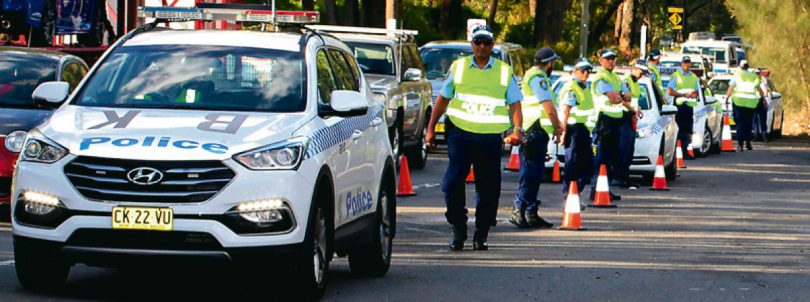Saturday, December 17 marks the 40th anniversary of the introduction of random breath testing across NSW roads.
Prior to random breath testing, the state’s annual road toll regularly surpassed 1,200 fatalities, and authorities recognised that measures needed to be introduced to address the issue.
In 1982 NSW became one of the first jurisdictions in the world and the first in Australia to introduce random breath testing.
Prior to the introduction of random breath testing police could only stop a motorist due to their manner of driving.
In the first five years following the introduction of random breath testing across the state, road fatalities fell from 1,303 in 1980 to 1,067 in 1985.
In 1980, the percentage of road fatalities linked to drink driving was 30 per cent. Of the 275 road fatalities recorded in NSW last year (2021), 17 per cent were attributed to drink driving – cutting the percentage by almost half and reducing the number of alcohol related fatalities by 88 per cent.
In January 2007 NSW Police also commenced testing motorists for drug driving.
Deputy Premier and Minister for Police Paul Toole said community attitudes have shifted over the last four decades.
“Today, drivers are well aware that they could be stopped for a random drug or breath test anywhere and at any time,” Minister Toole said.
“The statistics speak for themselves – since RBTs were introduced, thousands of lives have been saved.
“We all want to ensure everyone gets home safely to their loved ones this Christmas period – and no one should rob a family of that with a selfish decision to get behind the wheel after they’ve been drinking.
“If you are planning to have a few drinks over the festive season, leave the car at home and have a Plan B.”
Traffic and Highway Patrol Commander Assistant Commissioner Brett McFadden said alcohol and drug driving was still a major concern for police.
“Despite road fatalities having dropped since the introduction of RBT, it is still disturbing that many drivers can’t see an issue with having a few drinks, or consuming illicit drugs, before getting behind the wheel,” Assistant Commissioner McFadden said.
“Getting behind the wheel of a car under the influence – no matter how much you consume – is not a sign of someone who is in control, it’s a sign of someone who can be up to 25 times more likely to be involved in a crash because of their state of intoxication.
“Our aim is to bring alcohol and drug-related fatalities to zero.
“Alcohol and drug-related fatalities are 100 per cent avoidable. The message is simple – don’t drink or take drugs and drive, have a plan ‘B’ if you’re planning on having a few, and speak up if you see someone getting behind the wheel under the influence.
“We all have a part to play in keeping our roads safe.”
Since the introduction of RBT, alcohol related road deaths fell from 389 in 1980 to 47 in 2021.
RBT helps save thousands of lives
DEPUTY Premier and Minister for Police, Paul Toole has joined Transport for NSW and NSW Police Force to mark four decades of random breath testing on NSW roads, ahead of the Christmas/New Year holiday period.


